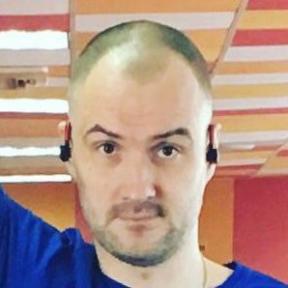“Creation of a standard soil data center” - course 15,000 rubles. from MSU, training 4 weeks. (1 month), Date: November 28, 2023.
Miscellaneous / / November 29, 2023
Program volume (academic hours): 72 hours (24 classroom hours)
Form of study: full-time, distance learning
Dates of classes: as groups are recruited (small groups, from 5 people)
Admission requirements: higher professional education or secondary specialized education
Program Manager: Oleg Modestovich Golozubov, Email: [email protected], tel.8(495)939-55-87
Responsible for additional education: Timofeeva Elena Aleksandrovna, Email: [email protected], tel. 8 (903) 22-33-99-2, 8(495)939-22-33
If necessary, the program can be adapted to the customer’s requirements - expanded, removed, or the necessary topics added to the curriculum of the additional education program
Who will benefit from this course?
This course is aimed at a wide audience of students who are interested in creating databases, containing attribute and cartographic information about the soil cover and environmental conditions of formation soil Acquiring skills in database administration, setting up web applications and using GIS in conjunction with a DBMS opens up great opportunities for course participants in solving scientific and practical problems related to issues of rational environmental management, land management and environmental monitoring.
What will you learn?
Course participants will receive the necessary knowledge to deploy a typical data center based on a local network and/or a virtual machine, and will be able to independently organize technological cycles and information processing infrastructure, create a Data Model (object model, semantic model, etc.) for a regional (or departmental) soil data center (PDC). The theoretical foundations of the course will help develop basic standards for data entry forms - standard xls sheets, shape files, xml forms, as well as create custom projects, enter soil data and use them for various applications tasks.
In what format are classes held?
A significant part of the course is related to practical exercises. The preliminary theoretical part is presented in lectures and discussed in seminars. The final certification is carried out in the form of a project defense.
1 Standardization in storage, presentation and exchange of soil data.
Life cycle and circulation of soil data.
2 Infrastructure and administration of a typical soil data center.
Infrastructure of a typical soil data center.
3 Experience in practical application of IS PGBD, practical tasks of soil data centers.
Interaction of open source software with GIS ArcGIS, QGIS, MapInfo.
final examination: Exam - Project defense – 2 hours
List of practical classes
Section 1 Entering profile data - V7 and V7mini; completing a task on your own data (2 hours)
Section 1 Setting up directories, exporting to XML, checking and filtering data. Disaggregation of soil map legends by taxa, presentation of contour information in GIS (2 hours).
Section 2 Installation and configuration of a virtual machine and a virtual client-server complex (2 hours).
Section 2 Object model of the database: profile, horizon and layer. Representative profile. Entering data into the database. Database object model: land plots. Principles of separate storage of spatial and attribute data; Identification of a spatial object in the database (2 hours).
Section 2 Object model of the database: soil contours, storage of several vector soil maps of different scales in one database; preparation, input, adjustment of soil contours Object model of the database: mixed (combined) sample. Entering survey data using structured tables (2 hours).
Section 3 Access to the server database from GIS (ArcGIS, QGis) to obtain soil information (contour and profile). Filtering and executing queries on data selection, operations on geographic data (2 hours).



